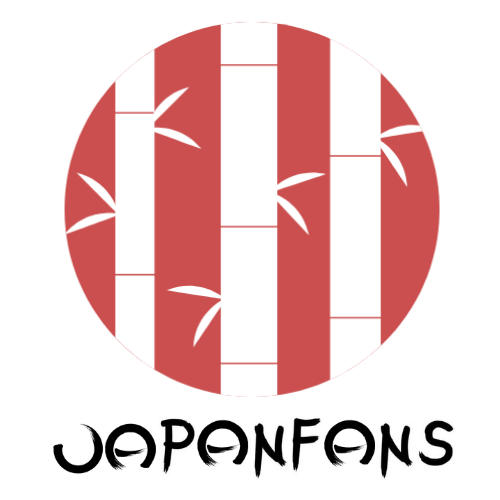At Heroes Made in Asia, a prominent Dutch cosplay event celebrating Asian pop culture, Japan Fans founder Martine delved into the narratives of people who identify as autistic otaku. Their accounts echo a broader sentiment within the autism community – a profound sense of solace and understanding found within the realm of otaku culture. For many, anime and manga provide a refuge, offering a communal sanctuary where social barriers dissolve, fostering connections based on shared interests and passions.

Introduction
The Japanese term “otaku” is commonly employed to delineate individuals whose fervent passion for a specific interest or hobby transcends the conventional boundaries of casual enthusiasm. Within the context of anime and manga, otaku fervently collect, consume, and immerse themselves in these manifestations of Japanese popular culture. In this discourse, I shall delve into the intriguing correlation between otaku culture and autism, drawing upon insights derived from conversations with autistic attendees of Heroes Made in Asia, a Dutch cosplay event that serves as a platform for enthusiasts to share their fascination with Asian pop culture.
Autism and Otaku Culture: An Intimate Nexus
In the course of a recent interview, I shared my own experience of discovering solace and a sense of community within otaku culture. The anime and manga realms provided a haven that assuaged feelings of isolation and fostered a profound sense of understanding. It is imperative to underscore that my testimony is not an isolated instance; a burgeoning community of autistic bloggers articulates the existence of a tangible link between autism and otaku culture. This link is multifaceted, suggesting the possibility that individuals with autism are more inclined to embrace the mantle of “otaku,” or that those within this intersection are more prone to harbor strong interests in science fiction and fantasy, recurring motifs in anime and manga.
When I conducted workshops and demonstrations at Heroes Made in Asia, a prominent Dutch cosplay event celebrating Asian pop culture, I met various other autistic individuals and talked to them about the connections between autism & otaku. All their answers are written down here with their permission, some of their first names have been changed to protect their privacy.
Potential Explanations for the Autism-Otaku Correlation
A plenitude of conceivable rationales might elucidate the enigmatic connection between autism and otaku culture. One plausible conjecture pertains to the predilection of individuals with autism for the escapist qualities that otaku culture affords. This notion of escapism is central to my own experience. Otaku culture, with its imaginative and fantastical narratives, offers individuals on the autism spectrum a safe haven from the complexities of the outside world. Within the controlled confines of anime and manga, they can freely explore their interests, unencumbered by social anxieties.
This sentiment was strongly articulated by Lara, an autistic attendee, who emphasized the solace found in the fictional worlds of anime characters: “Anime and manga furnish a secure and welcoming realm wherein individuals with autism can explore their interests and partake in meaningful interactions with like-minded individuals”.
Related to this, it is intriguing to consider the otaku phenomenon as a response to trauma. Drawing from the reflections of Milan, who emphasized the historical context of their upbringing as a second-generation immigrant in the Netherlands, otaku might be providing autistic people an avenue for individuals to escape the harsh realities of the world. The perspective of anime as a reaction to the trauma of World War II, as initially proposed by Ivo Smits, thus gains resonance within the experiences recounted by autistic attendees.
Another conjecture rests on the proposition that individuals with autism may exhibit heightened sensory sensitivities. Within the context of anime and manga, these individuals may discover a medium through which they can experience sensory stimulation within a controlled environment. Vibrant hues and frenetic action sequences characteristic of anime may offer a comforting sensory experience, as expounded upon by Erik, an attendee of Heroes Made in Asia with autism: “I just love the bright colors and soothing music of Ghibli.” This is something I very much recognize myself, and one of the reasons I love playing Ghibli music on the piano.
Finally, there exists the possibility that individuals with autism exhibit a greater proclivity for an intrinsic attraction to anime and manga. This inclination may be underpinned by the palpable relatability of the characters and narratives depicted in these media to the experiences and perspectives of individuals with autism. Sophie, an avid manga reader, shared me with how identifying with these characters helped her navigate her own social challenges, fostering a sense of belonging. Notably, anime and manga often feature characters who are socially awkward or possess unique interests, attributes that resonate with individuals on the autism spectrum. (I personally recognized a lot in Chi (ちぃ Chii) from Chobits!)
Otaku Culture as a Supportive Nexus
In conclusion, the intricate interplay between autism and otaku culture is a multifaceted tapestry, interwoven with themes of escapism, sensory engagement, and relatability. The narratives shared by respondents at Heroes Made in Asia underscore the profound impact of otaku culture on the lives of individuals on the autism spectrum. Beyond a mere leisure pursuit, otaku culture serves as a supportive nexus, fostering a sense of belonging, providing a platform for self-expression, and facilitating connections among like-minded individuals. This symbiotic relationship between autism and otaku culture, as evidenced by the perspectives of those interviewed, continues to enrich our understanding of both communities, emphasizing the importance of further scholarly inquiry into this intriguing intersection.
Blog post written by Martine Mussies
